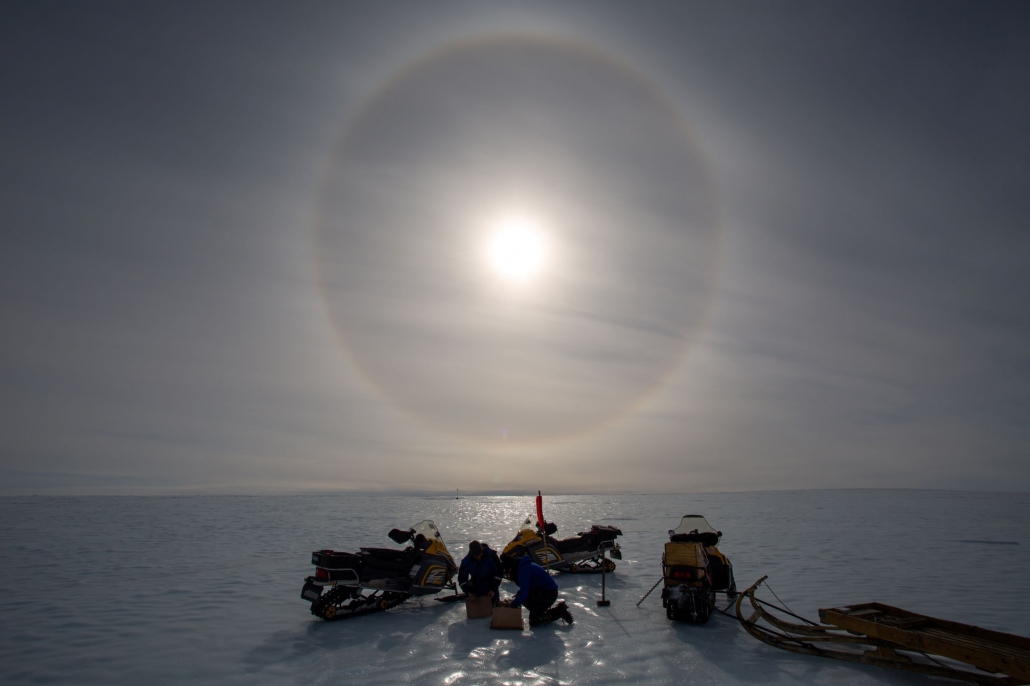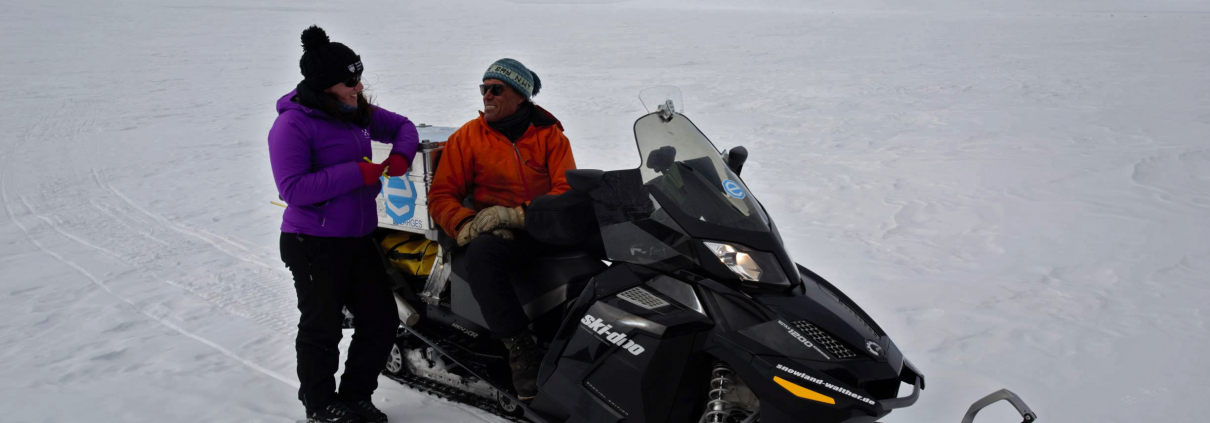Kate back in Antarctica
Last year, we followed Dr. Kate Winter’s trip to the Princess Elisabeth Research Station in Antarctica. A year later she’s back, and already a week behind schedule as wind and snow made it too risky to land her plane at the remote station, for a few days.
In the photo above she’s chatting to the base commander, Belgian explorer Alain Hubert, but for the most part she’s back into the science immediately, while the weather holds. In the photo below, she’s installing RaspberryShake seismometers with her field guide Henri. They’re installing the instruments on the blue ice near the station, hoping to record the timing of ice cracks which happen naturally through the Antarctic Summer.

You might notice something else in the photo, too. Like, say, the giant halo of light around the sun. This is an Antarctic Halo, which Kate describes as (understatement alert!) ‘really cool.’ There are several different atmospheric and light phenomena you might see in Antarctica; this sort of halo is one of the ‘simpler’ ones. It’s sort-of like a rainbow in that it’s formed as light refracts through particles in the air. But if you think about any time you’ve seen a rainbow, you might have noticed that the sun is always behind you. In this case, the sun is clearly in the centre of the halo, and you’re looking at a bright, full circle. This – Kate thinks, and we’d concur though we’d all be happy to be corrected – is a 22° Halo, resulting from the high, wispy clouds you can also see in the photo.
It’s not a particularly rare phenomenon. Indeed, in the right conditions you could see one in Newcastle. But it does make for an awesome photo, and in googling around about the effect we stumbled across this photo too, which is amazing. Or the photo at the top of this article from Smithsonian Magazine, which is the sort of thing you might see in a video game when the rendering engine has broken.
We’ll bring more stories from Kate over the next few weeks. Find out more about her research and life on the ice on her web pages here at NUSTEM.





Leave a Reply
Want to join the discussion?Feel free to contribute!